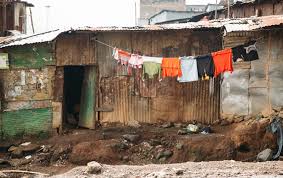 Poverty is a state where individuals lack financial resources.
Poverty is a state where individuals lack financial resources.
This leads to inadequate living standards.
Poverty has various causes and effects: environmental, legal, social, economic, and political.
Absolute poverty measures income against basic needs like food, clothing, and shelter.
Relative poverty compares a person’s living standards to others in the same area and time.
As of 2019, many people live in poverty.
About 85% earn less than $30 per day.
Two-thirds earn less than $10 daily, and 10% survive on under $1.90.
Social issues like gender, disability, race, and ethnicity worsen poverty.
Women, children, and minorities often face the worst effects of poverty.
Impoverished individuals are at higher risk from environmental impacts and climate change.
Poverty can worsen other social problems.
Economic pressures in poor communities contribute to deforestation, biodiversity loss, and ethnic conflict.
Definitions of poverty change based on context.
Poverty denies choices and opportunities and violates human dignity.
It results in the inability to participate fully in society.
Poverty means not having enough to feed a family or access schools and clinics. It also includes lacking land, jobs, or credit.
Poverty brings insecurity, powerlessness, and exclusion for individuals and communities.
It increases susceptibility to violence and often leads to living in fragile environments.
Lack of basic security means missing the factors necessary for individuals and families to thrive.
